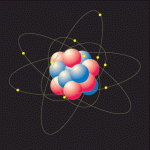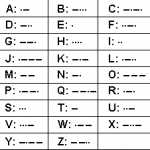information
One of the many interesting sessions I attended at ScienceOnline 2010 (#scio10) covered the questions of trust and critical thinking.
Sitting in the audience, I couldn't help but think of a mash-up (like on Glee!) between this session the one on Fact checking.
Granted, I know I'm a nitpicky scientist with an obsession for minutiae but I kept hearing statements during the session that I either wondered about or I knew were completely wrong.
Here's our first mashup tweet from docfreeride from David Dobbs:
Writing 1st book, description of bit character in mid/late 60s... after book came…
To me, and I suspect many readers, the quest for information can be an intensely rewarding experience. Discovering a previously elusive fact or soaking up a finely crafted argument can be as pleasurable as eating a fine meal when hungry or dousing a thirst with drink. This isn't just a fanciful analogy - a new study suggests that the same neurons that process the primitive physical rewards of food and water also signal the more abstract mental rewards of information.
Humans generally don't like being held in suspense when a big prize is on the horizon. If we get wind of a raise or a new job…
Every now and then, people hire me to travel places and give workshops for college instructors and teachers on using bioinformatics. In a couple of weeks, I'll go to Long Branch, NJ. This week, I went to Corpus Christi, Texas and gave two workshops at Del Mar College; one on using Cn3D to understand protein DNA structure, and another on using BLAST to identify the source of unknown DNA sequences.
Del Mar College has a beautiful science facility, with an amazing assortment of fancy high tech equipment. The workshops were fun and I enjoyed seeing the student posters showcasing work on the…
This has been all over my inbox since the press release came out yesterday; it's been on slashdot (thanks Brian), it's been at space.com, and there's a mediocre writeup on Universe Today. What's the big news? Black Holes don't destroy information after all!
What is this whole information thing, anyway? Take a look at all the normal stuff in the Universe: photons, protons, neutrons, and electrons, for example. They have lots of different properties each. They move around one another, they get bound and unbound from one another, they exert forces on one another, etc. They're aware of one…
To follow up on the faster than light post here, let's ask another question:
If you can make a way of transferring information that doesn't involve matter, is that information limited by the speed of light?
First off, let's go over what information is, and then we'll talk about how transferring information without matter is even possible. Information is anything that's organized in a meaningful manner. Take a look at the following three sentences:
This sentence contains some information.
Tihs scnnteee cainntos smoe imnfriatoon.
Not a imfro nimsoe mnoisn ctrnsnet sihto.
Each of the three…


